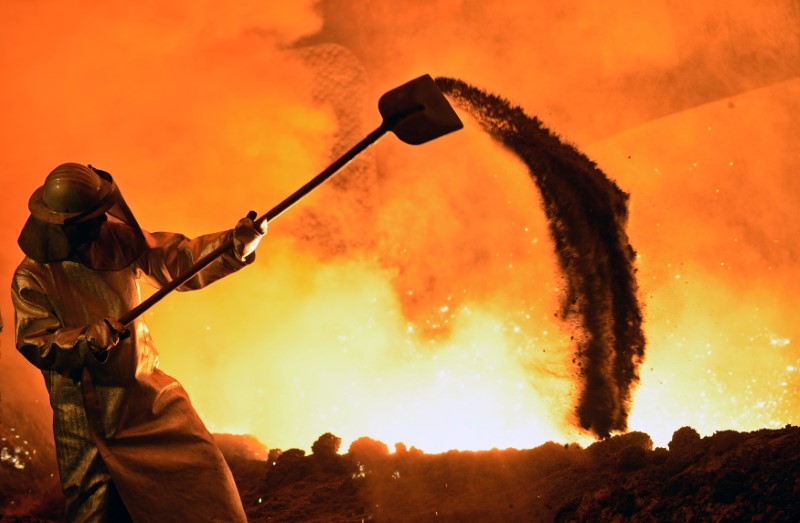By Michael Nienaber
BERLIN (Reuters) - Weaker output in manufacturing and construction drove the biggest monthly drop in German industrial production in nearly eight years in December, dashing prospects for robust growth in the final quarter of 2016.
The surprisingly feeble figures, published by the Economy Ministry in Berlin on Tuesday, were put down to special factors. They also came after industrial orders posted their strongest rise in around 2-1/2 years in December, pointing to a rebound in manufacturing at the start of the year.
Industrial output fell by 3.0 percent on the month, Tuesday's data showed. This was weaker than any prediction in a Reuters poll and far below the consensus forecast for a rise of 0.3 percent. It was the steepest drop since January 2009.
"Even though it looks dramatic, today's December drop should be taken with a pinch of salt," ING economist Carsten Brzeski said, adding that special factors such as the unusually cold winter temperatures and an extraordinary Christmas effect were probably the main reasons for the sharp drop in December.
The fall was mainly caused by a 3.4 percent drop in manufacturing output, with production of capital goods especially weak, and a 1.7 percent decrease in construction, the data showed.
The November reading was revised up to a rise of 0.5 percent from a previously reported rise of 0.4 percent, helping quarterly output to decline by just -0.1 percent.
The Economy Ministry said the outlook was looking better.
"Orders in manufacturing and construction and also sentiment indicators in these sectors are signalling a revival of output growth in coming months," the ministry said.
Commerzbank (DE:CBKG) economist Ralph Solveen agreed, saying he expected industrial production to rebound strongly in January.
But ING's Brzeski gave a more cautious outlook, hinting to political risks such as the unknown outcome of negotiations following Britain's decision to leave the European Union and a possibly protectionist U.S. trade agenda under Donald Trump.
"Uncertainty in and about two of Germany's most important trading partners, the U.S. and the UK, should put a cap on any upward potential," he said.
Higher demand at home and abroad for goods needed in production drove the biggest monthly increase in German industrial orders since July 2014, pointing to a strong first quarter of 2017.
The German economy grew by 1.9 percent in 2016, the strongest rate in half a decade, helped by soaring private consumption, increased state spending on refugees and higher construction investment.

For this year, the government expects weaker growth of 1.4 percent due to fewer work days and weaker exports.